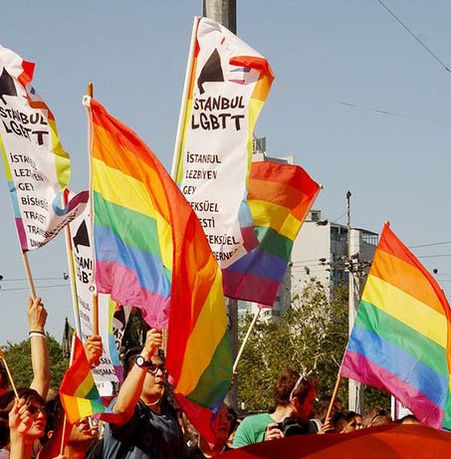STRENGTHENING REPRODUCTIVE HEALTH AND RIGHTS IN TURKEY
Turkey is among countries with high population in the world, despite considerable decrease in population growth rate in the last decades. Population, together with migration moves, is a result of people’s reproductive behavior. Reproductive health and rights in Turkey is still an area where inequalities prevail, violence is evident and there are barriers for exercising basic human rights.
National statistics show great discrepancies in population and reproductive health indicators based on regional, urban/rural and socio-economical conditions. Maternal mortality rate is still higher than that of developed countries and there are clear differences between regions regarding pre-natal care services. Violence continues to harm women’s lives in all spheres of life; early marriages, child abuse, honor killings and incest continue to threaten women and young girls in Turkey.
Daily news and research show that people with different sexual orientation and identity face discrimination before the law and in daily life. Homosexuals or transgender individuals suffer from maltreatment and refusal. LGBT issues are taboo in society and homophobic attacks occur frequently.
Bearing in mind the potential population increase in the coming forty years; protecting and improving the health of increased population is of particular importance. The proper approach is directly connected to individual’s exercising his/her reproductive and sexual rights.
HRDF has implemented many projects to enhance reproductive and sexual health of individuals and to support them to exercise their reproductive and sexual health and rights. In “Community Based Reproductive Health” Program that have been started in 1989; reproductive health and family planning information have been provided to families in shanty town areas. Women have been supported to access and benefit from health centers. HRDF has also worked to empower health service providers on reproductive health and rights. Reference books have been prepared and published; capacity building trainings have been organized for health personnel. HRDF has carried its experience to other countries and has supported implementation of similar projects in Azerbaijan and Kazakhstan. HRDF also has implemented trainings and makes publications on adolescent sexual health. HRDF has worked to improve quality reproductive health services for youth in medico-social units of pilot universities; provided capacity building trainings to local NGOs regarding reproductive health.
EMPOWERING VULNERABLE GROUPS
Prostitution has always been an issue of debate in the realms of morality, sexuality, organized crime, health, exploitation of women and children, inequality between men and women and human rights.
Today, sex-work needs to be redefined both in the context public health in terms of HIV/AIDS and other STIs prevention and in the context of human rights and human dignity. It is essential to eliminate violence against sex workers and enable them access to economical and social support services.
Although limited, there are efforts to provide information to promote safe sex behavior to sex workers by NGOs. Sex workers are under risk not only in terms of HIV or other sexually transmitted infections but also human trafficking, substance addiction and various human rights violations.
WOMEN'S DOOR
Established by HRDF, "Women's Door" is a counseling center providing counseling and trainings to sex workers which was established under a previous program targeting sex workers. At the initial stage of the project, the center aimed to promote safe sex behavior to sex workers and to prevent HIV/AIDS epidemic. In the following years, the works shifted more to supporting human rights of sex workers. Women's Door supports sex workers on their social and psychological problems, provides sexual health and legal counseling. Different NGOs support Women's Door; among them are STD Prevention Society, Istanbul LGBTT, AIDS Prevention Society and Positive Association.
The works of Women's Door can be summarized below:
Training and Counseling on Sexually Transmitted Diseases
Information on sexually transmitted diseases is provided to sex workers either at the Center or through mobile units that reach sex workers working on the street. Those with problems receive counseling at the Center, guidance is provided and they are accompanied when necessary.
Legal Counseling
Sex workers with legal problems receive information, counseling and guidance at the Center.
Social Support
Women's Door serves as a support environment where sex workers feel empowered to deal with problems. Volunteers provide counseling and guidance.
Health Problems
Information, counseling and guidance is provided to sex workers with health problems.
Advocacy
Women's Door supports projects that help sex workers exercise basic human rights as other individuals.









































